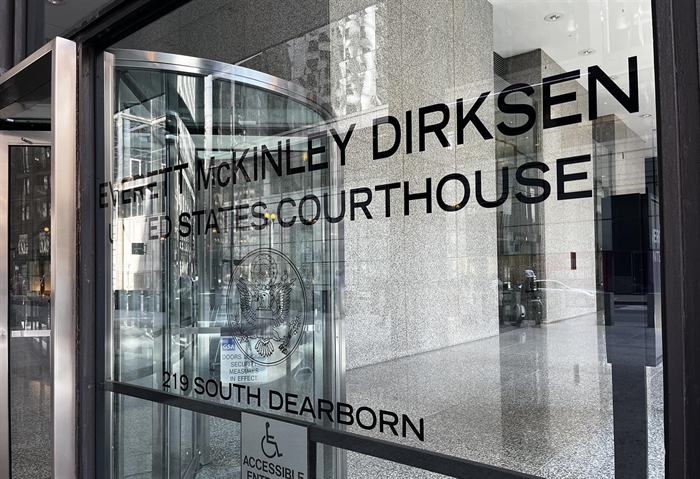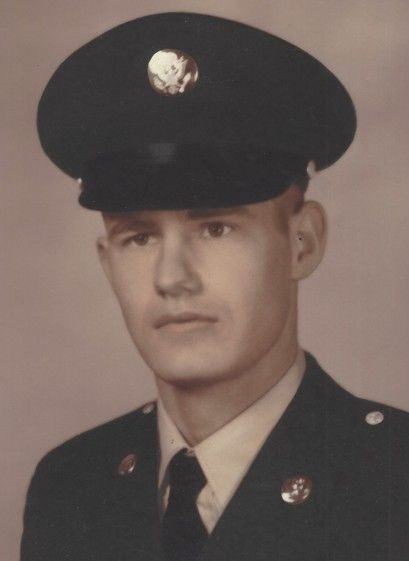Government paints ex-ComEd officials as ‘grand masters of corruption’ before jury deliberations

CHICAGO – Attorneys for both the defendants and the government made the same appeal to a federal jury Tuesday before it was left to deliberate the fate of four former Commonwealth Edison officials accused of bribery.
“Use your common sense,” U.S. Attorney Amarjeet Bhachu said while wrapping up the government’s final rebuttal in the trial’s closing arguments.
Three ex-lobbyists for ComEd and the utility’s former CEO stand accused of orchestrating a seven-and-a-half-year bribery scheme in which they allegedly gave jobs and contracts to allies of longtime House Speaker Michael Madigan in exchange for an easier path for the utility’s preferred legislation in Springfield.
Attorneys for longtime ComEd lobbyists John Hooker and Jay Doherty issued the exact same refrain as Bhachu earlier in the day.
“We count on each and every one of you to use your common sense,” Hooker’s attorney Jacqueline Jacobson said as she began her closing arguments Tuesday morning.
Hooker officially retired from ComEd in early 2012 but returned to the utility as a contract lobbyist after that. Jacobson stressed this fact in telling the jury her client couldn’t have taken part in the actions that made up the alleged conspiracy after his retirement, as he had no decision-making power within ComEd as an outside contractor.
“Use your common sense,” Doherty attorney Michael Gillespie urged the jury when discussing a gesture his client used during a secretly videotaped meeting in 2019.
In the recording captured by the government’s star cooperating witness and played multiple times throughout the trial, Doherty is shown holding up four fingers to represent the $4,000 per month he began paying a Madigan ally in August 2011. Those checks represent a large chunk of the $1.3 million ComEd paid out to a handful of such Madigan allies who did little to no work on the utility’s behalf for various lengths of time until mid-2019.
But Gillespie downplayed Doherty’s involvement in the alleged scheme, claiming his lobbying firm was merely the pass-through entity in charge of paying the subcontractors. Mirroring assertions given by the attorneys for the other two defendants during their closing arguments on Monday, Gillespie said the fact that the subcontractors didn’t perform much work while still receiving their monthly checks was due to mismanagement on the part of Fidel Marquez, the former ComEd executive-turned-government informant.
“So when government gets up here and tells you it’s supposed to mean something…that he puts up four (fingers) as opposed to saying four,” Gillespie told the jury to use their common sense. “That doesn’t mean something. Doesn’t mean he’s hiding anything.”
In his searing rebuttal that ended closing arguments Tuesday afternoon, Bhachu sought to undercut the defense’s oft-repeated question to both witnesses and jurors: If ComEd had been bribing Madigan, why did the utility spend so many resources on its legislative strategy in Springfield?
“If there was a conspiracy to bribe Madigan, you would think the government would be able to show us one time that ComEd asked Madigan for help with legislation,” defendant Anne Pramaggiore’s attorney Scott Lassar said during his closing on Monday. “They weren’t able to do it.”
Bhachu – a prominent federal prosecutor whose name has been attached to most of the highest-profile public corruption cases in Illinois in recent years – told jurors that even witnesses with high-ranking jobs in ComEd wouldn’t have been told about the Madigan bribery scheme “because the defendants are not that stupid.”
“These are not amateurs,” Bhachu said, pacing the center of the courtroom as he pontificated to the jury. “They were not playing checkers, they were playing chess. And when it came to chess, Mr. McClain and the other defendants were grand masters of corruption. They knew what they were doing.”
After Bhachu’s rapid-fire closing arguments, Judge Harry Leinenweber – who served alongside both Madigan and McClain in the Illinois House in the 1970s and early ‘80s – read nearly 70 pages of jury instructions from the bench. Then he released alternate jurors after replacing one permanent jury member who’d said from the beginning that she had a vacation planned for May 1.
The jury deliberated for a little over an hour on Tuesday afternoon and is set to return to the courthouse at 10 a.m. Wednesday for what could be hours or days of debate
Jury members were instructed on how to weigh the nine-count indictment against the six weeks of trial that preceded closing arguments Monday and Tuesday. The jury heard well over 100 recordings of wiretapped phone calls, plus voicemails and several more secretly videotaped meetings, in addition to reading hundreds of emails produced as evidence.
They also heard from approximately 50 witnesses. One of those was Marquez, who took the stand over a period of three days late last month. On Tuesday, defense attorneys took their last opportunity to place both blame and doubt on Marquez.
Gillespie again pointed to Marquez’s initial meeting with the feds on a cold January morning in 2019, after two agents made a 6 a.m. visit to his mother’s house where he’d been staying. Echoing points other defense attorneys made earlier during trial, Gillespie portrayed that meeting as a black box, as neither Marquez nor the agents could testify as to what exactly they said that resulted in Marquez’s immediate agreement to cooperate.
“Why did (the agents) not tape that initial meeting with Marquez?” Gillespie asked the jury. “That is not okay. That is not acceptable. You wanna send these folks to jail? You tape these meetings.”
Jacobson reiterated what Marquez himself had acknowledged while on the witness stand: “The government scared Fidel Marquez to death.”
She then returned to points she made in her aggressive cross-examination of Marquez last month, which opened with his messy divorce proceedings in which he allegedly sought to stash $400,000 with a girlfriend.
“What do we know about Marquez? He lies to benefit himself,” Jacobson said. “He admitted that he hid money from his ex-wife – perjury – and when he got caught, he lied again.”
Jacobson told the jury to “keep the evidence in context.”
“The government takes everything out of context,” she said. “Don’t let them. Context. Common sense. The real world. It’s all important.”
One key piece of context, Jacobson asserted, was the fact that even before Hooker asked Doherty to take on two Madigan allies as subcontractors in the summer of 2011, ComEd had already gotten its key “Smart Grid” legislation over the finish line in Springfield that spring.
The utility had to go back for round two after then-Gov. Pat Quinn had vetoed the bill. But Jacobson reminded jurors that the company’s former general counsel testified that he didn’t view the second leg of the government’s bribery theory – the contracting of Madigan ally Victor Reyes for outside legal counsel – as a bribe. Tom O’Neill said the Democratic leaders of the General Assembly had already signaled their willingness to override Quinn’s veto on Smart Grid.
“(Then-Senate President John) Cullerton and Madigan had already committed to the override,” Jacobson said. “It makes no sense.”
But Bhachu told the jurors to view the subcontractors and the law firm contract for Reyes in context with other hires ComEd made between the latter half of 2011 and mid-2019.
That includes the hire of Madigan-recommended Latino business leader Juan Ochoa for a $78,000 one-year stint on ComEd’s board, and the utility’s internship program that allegedly made special exceptions for unqualified applicants from the speaker’s power base on Chicago’s southwest side.
The defense emphasized throughout the trial that it was not unusual for politicians to make job recommendations to leaders at ComEd. But Bhachu told jurors that the way in which Madigan-connected applicants got jobs and contracts was, in fact, unusual in the way the speaker – through his close friend McClain – would continue to push those resumes.
“It was a corruption toll to make sure that Mr. Madigan was not an obstacle to their legislative agenda,” Bhachu said of ComEd’s payouts and hirings. “And they paid that toll every month, from 2011 to 2019 when they were caught.”
Miss Clipping Out Stories to Save for Later?
Click the Purchase Story button below to order a print of this story. We will print it for you on matte photo paper to keep forever.

